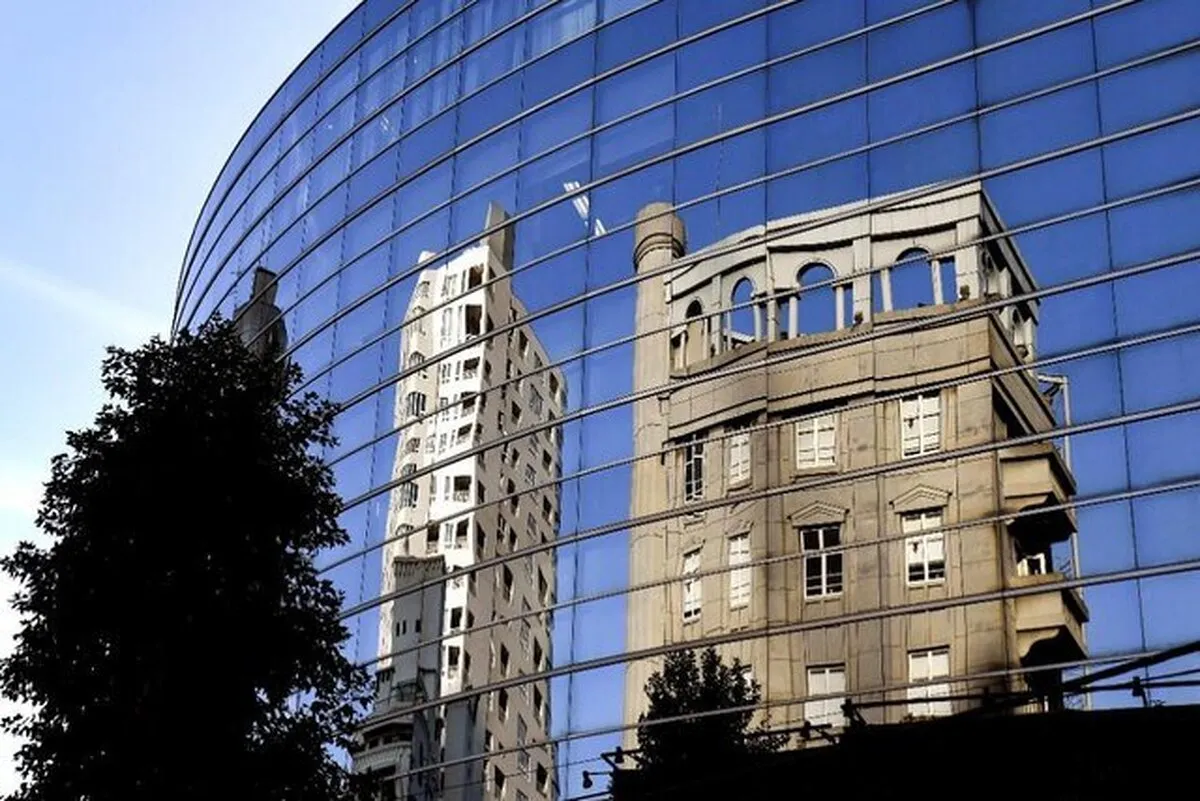Reducing Energy Loss through Windows with Nano Low-E Glass

A report by Iran’s National Nano Headquarters said that Low-E (low emissivity) glass produced by an Iranian factory is one of the technologies that has greatly contributed to reduction of energy loss in buildings. These glasses have much less heat transmission than normal glass and act like a transparent thermal insulator. About a third of the building's energy is lost through windows, so these glasses can help reduce energy loss.
Energy-efficient glazing is the term used to describe the double glazing or triple glazing use in modern windows in homes. Unlike the original single glazing or old double glazing, energy-efficient glazing incorporates coated (low-emissivity) glass to prevent heat escaping through the windows.
The glasses that the Iranian manufacturing group has produced is called Ecostar glass and Ecostar Plus glass which are colorless thermochromic smart glass produced by a soft coating method.
The method of soft coating refers to offline magnetron sputtering coating and vacuum evaporation process, while hard coating refers to the glass that is manufactured by on-line coating process, which includes immersion offline coating process method.
The metal oxide coating is coated on the glass surface in vacuum conditions by sputtering and this coating reflects short and long infrared waves. The appearance of Ecostar glass is similar to that of standard standard double-glazed glass in both transmission and reflection modes. Aquastar can be enhanced by using it with other types of glass to create sound insulation, security, decoration and privacy.
Ecostar double-glazed windows are up to three times more thermal-insulating than ordinary double-glazed windows, and this feature comes with many advantages, such as preventing the loss of thermal energy, reduction in energy consumption for providing heat, and preventing the glass from steaming in the cold seasons of the year.
Thermochromic smart glass has clear benefits in reducing solar heat gain into buildings, reducing air conditioning costs and contributing to constructing ‘net-zero’ buildings.
Also, considering that this type of glass contains the direct sunlight more than twice the other glass, it gives comfort in summer and reduces costs of maintaining the buildings cool. In addition, these types of glass also prevent the entry of ultraviolet.
Ecostar Plus glass is produced by layering one or two layers of silver on the surface of the glass using vacuum insulating method and nano technology. Normal transparent glass has a surface emissivity of 84, which means 90% of the absorbed thermal energy is radiated through the surface of the glass; but when Low-E coatings are applied to the glass, the surface diffusion coefficient is reduced to less than 1.
This product greatly reduces ultraviolet transmission and absorption of heat from sunlight, while at the same time, it allows the maximum amount of visible light to pass through the window. The coatings on Ecostar Plus glass reduce the heat absorbed or lost in the building by reflecting ultraviolet by changing the direction of heat radiation. It also creates the best balance between visible light transmission and solar energy control and has the highest visible light transmission compared to other types of glass.
This product is used in commercial buildings, light spaces such as greenhouses where light transmission or low reflection is required, as well as residential buildings and all buildings where the use of tempered glass is required. By maintaining the stability of energy consumption, Eco Star Plus glass guarantees heat in winter and cold in summer, and is considered an excellent choice for both hot and cold weather. Considering that Low-E coatings with high energy saving performance increase building efficiency by reducing energy consumption, investment in this industry will be highly beneficial for the country.
4155/i





















